Need of NGOs for a better society
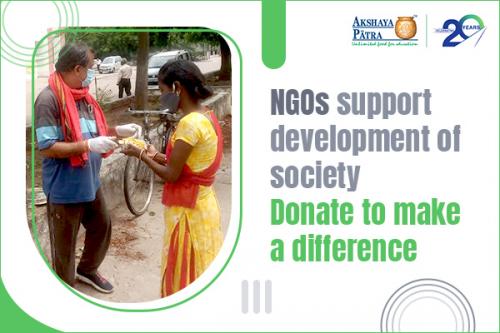
How do NGOs run? Does the government fund them? Does a group/community supply all their needs? There are 3.4 million NGOs in India and not all of them are independent. Some of these organisations rely on the government, while some work on a partnership basis. NGOs are legally constituted bodies that are mainly created by people for operating on a non-profit business. NGOs work to improve the lives of people by playing a role in the development of a nation, a state or a community.
NGOs are an integral part of the society that enhance social integration and the building of civil society. They provide aid to the distressed, elevate their status, eradicate poverty, provide education, distribute food in times of calamities, etc. They bring in a lot of changes in the beneficiaries’ life, be it children, aged people, the environment or animals.
How do the roles of an NGO impact society?
• They work for a social cause without having any need for profit-making.
• They plan an important role in the development of society by helping people from different spheres of society.
• Apart from getting themselves involved in the NGO, they also help by connecting donors to people who need financial assistance.
• As they are not completely dependent on one community, they can continuously work for the betterment of society on a larger scale without having to depend on one single person or source of help.
• NGOs help in restoring the limelight of the ignored sections, places and areas of the society.
No matter what is going on, you can be a part of an NGO and help in making an impact on society. For example, during the pandemic, you could choose to join organisations that are providing COVID relief services as a part of their programmes. From the beginning of March 2020, a number of these non-profit organisations, came forward to provide food, water and transport during these difficult times and they were applauded by The Supreme Court of India.
In a pandemic of this scale, the Government of India to reach out to millions of people suffering without food and/shelter. To reach out at such a large scale, it needed more hands for providing relief.
According to the Centre for Social Impact and Philanthropy (CSIP), Ashoka University, in June 2020, three-fourth of NGOs were actively involved in carrying out the relief work.
The relief work would range from the packaging of kits, community awareness, setting up health camps, to last-mile delivery of relief material. People from marginalised communities have received an immense amount of support with the help of such organisations.
During the whole of the lockdown period, The Akshaya Patra Foundation has carried out its COVID relief efforts of providing food to people in need. The organisation has helped people from different sections of society that include artisans, pregnant women, migrant workers, labourers, construction site workers, mid-day meal beneficiaries, orphans, elderly and homeless mothers who have lost their husbands.
With the organisation’s various feeding programmes, a total of 151 million (15.1-crore) meals have been served as a part of the COVID feeding service. Cooked meals, Family Happiness Kits, Shakti Kits and Raksha Kits were distributed to millions of people in need. In these tough times of crisis, people need to improve their health to avoid being gripped by any disease caused by different bacteria or viruses.
With each kit, people in need get the right amount of nutrients and carbohydrates that can help them stay healthy and on a full stomach. By donating online towards Akshaya Patra’s feeding programmes, you support them by providing food essentials that provide proteins, carbohydrates, iron, glucose, etc. With your online donations, millions of people can gain access to food and necessities.
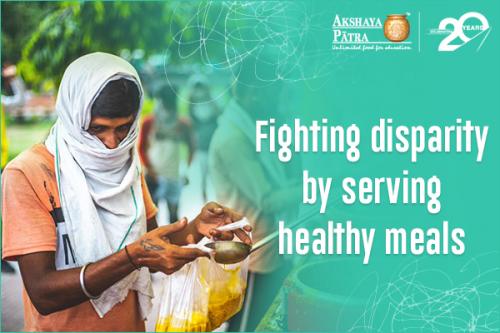
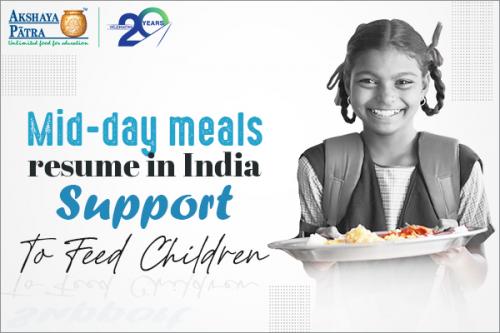

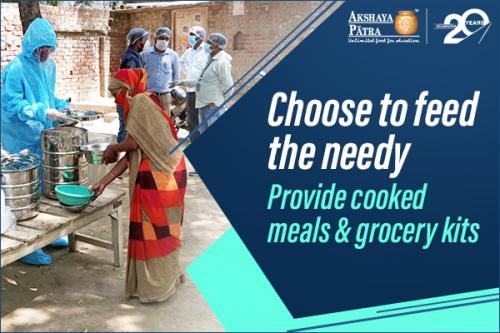
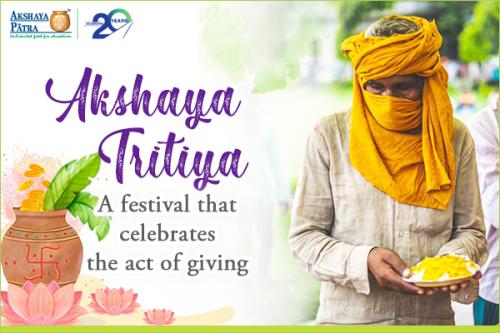

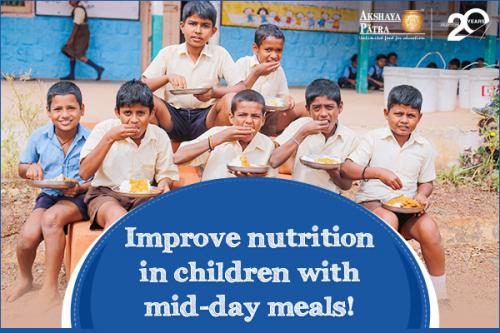
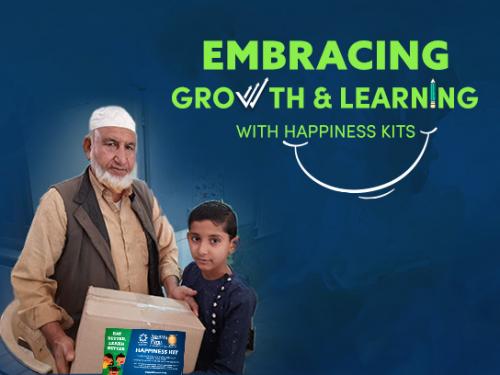
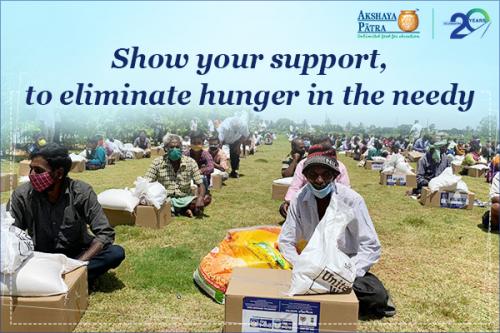
Comments